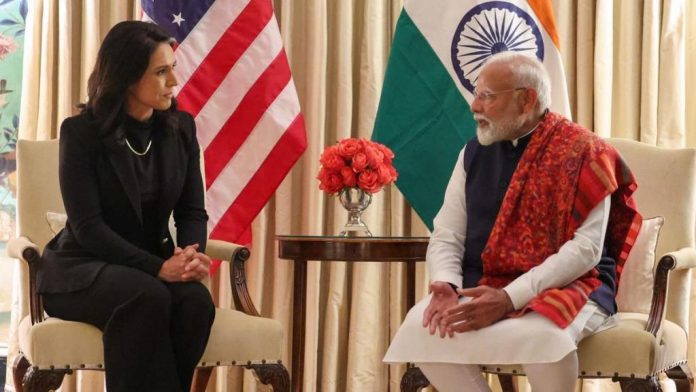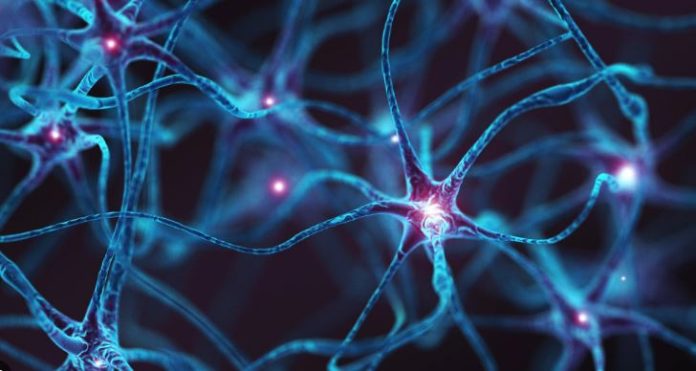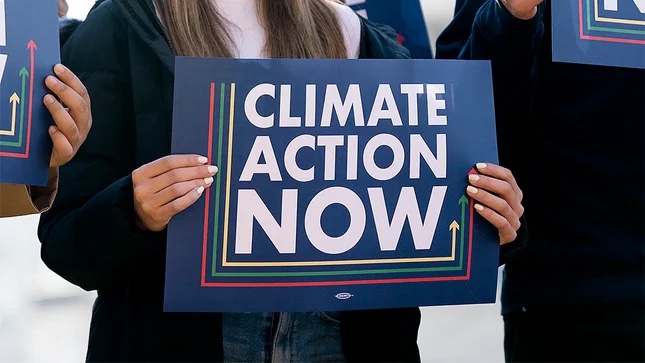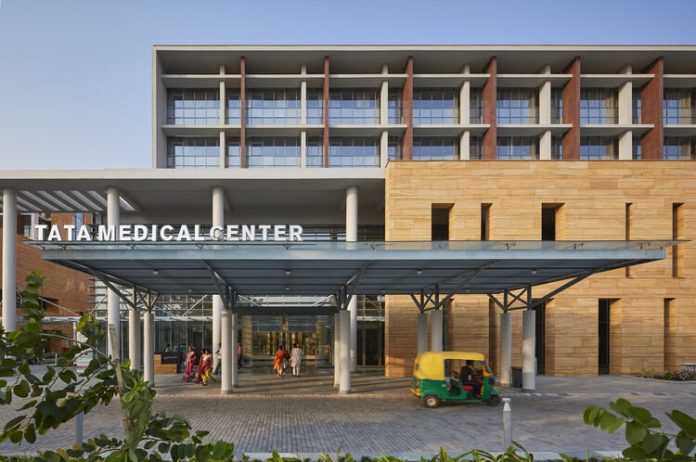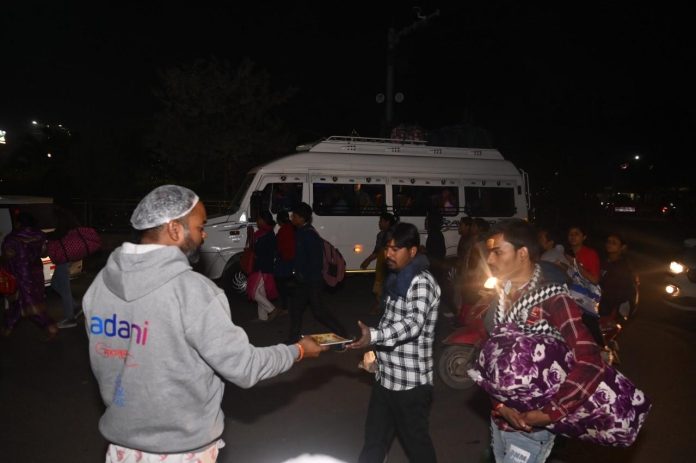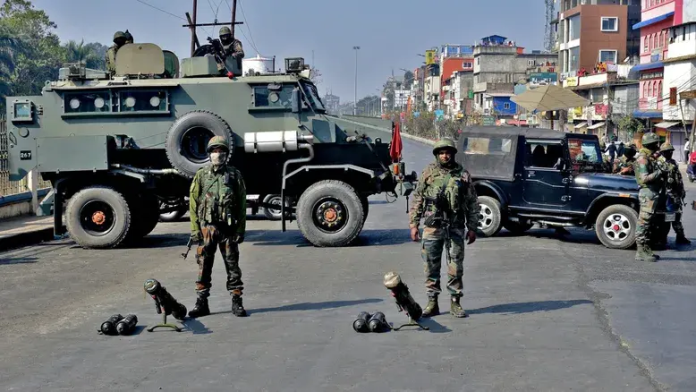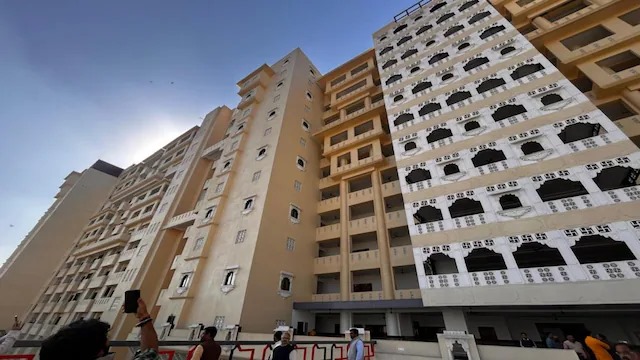Prime Minister Narendra Modi arrived in Washington on Thursday for meeting US President Donald Trump. PM Modi who is on a two-day visit to the states, started the bilateral interactions on February 13 by meeting US Director of National Intelligence Tulsi Gabbard.
Their discussions touched on enhancing bilateral intelligence cooperation, particularly in counter-terrorism, cybersecurity, emerging threats, and strategic intelligence sharing. They also exchanged views on regional and global developments of mutual interest, reaffirming their commitment to a secure, stable, and rules-based international order.
The PM is also expected to meet tech billionaire Elon Musk.
PM Modi has been put up at the Blair House, the US presidential guest house at the heart of the American capital Washington, D.C. This will be PM Modi’s first meeting with Trump after the latter assumed US presidency for a second term last month. PM Modi will be the fourth global leader to meet Trump at the White House since his inauguration on January 20 after Israel’s Prime Minister Benjamin Netanyahu, Japan’s Prime Minister Shigeru Ishiba, and Jordan’s King Abdullah.
The meeting between the two world leaders comes at a time when there is severe tension surrounding Trump’s trade tariffs on several countries, his controversial Gaza peace plan, and his ongoing mass deportation of illegal immigrants, especially Indians. It is being speculated that these issues will be discussed by both the leaders in a meeting aimed at strengthening bilateral ties.
Met USA’s Director of National Intelligence, @TulsiGabbard in Washington DC. Congratulated her on her confirmation. Discussed various aspects of the India-USA friendship, of which she’s always been a strong votary. pic.twitter.com/w2bhsh8CKF
— Narendra Modi (@narendramodi) February 13, 2025
Indians being deported from the US
The US Immigration and Customs Enforcement (ICE) has identified around 18,000 Indian nationals allegedly residing in the US without legal status. A US military aircraft carrying the first batch of 104 illegal Indian immigrants, including 30 from Punjab, landed at the Amritsar airport on February 5.
The flight, which departed from Texas, is an example of Trump’s aggressive push to expel undocumented immigrants, a move that has sparked backlash and raised questions about the treatment of deportees. The way the Indian people were transported points out severe human right violation by the US authorities. The use of military aircrafts instead of commercial ones also reflects a harsher approach in dealing with immigrants.
Among the deportees were women and children. People on the flight told the media that they were handcuffed and shackled throughout the journey lasting close to 40 hours. Harwinder Singh, a 40-year-old Indian man from Tahli village in Punjab’s Hoshiarpur who is among the ‘illegal’ immigrants whom the US deported in the first batch to India recounted the horror. Singh told the media, “For 40 hours, we were handcuffed, our feet tied with chains and were not allowed to move an inch from our seats. After repeated requests, we were allowed to drag ourselves to the washroom. The crew would open the door of the lavatory and shove us in.”
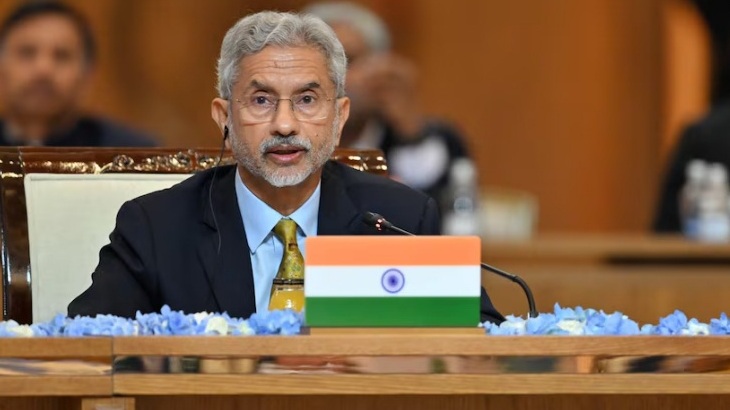
External Affairs Minister S Jaishankar on the US deporting Indians
Amid protests by opposition members about the way undocumented Indian nationals were handcuffed and chained by the US while deporting them to India, External Affairs Minister S. Jaishankar recently informed the Parliament that the deportation of illegal migrants was not a new development, and the use of restraints on the deportees was a “standard operating procedure”. According to Jaishankar, the use of restraints has been part of the standard operating procedures of the US Immigration and Customs Enforcement (ICE) authorities since 2012.
“We have been informed by ICE that women and children are not restrained… This is not a policy applicable to any specific country, nor indeed one only practiced by India. It is a general accepted principle in international relations,” the External Affairs Minister said in an attempt to downplay the US’ human rights violation towards Indians.
“We are, of course, engaging with the US government to ensure that the returning deportees are not mistreated in any manner during the flight,” he further said.
Jaishankar has also provided details of deportation from the US since 2009, with the figures showing that 15,668 Indian migrants were sent back over the last 16 years.

